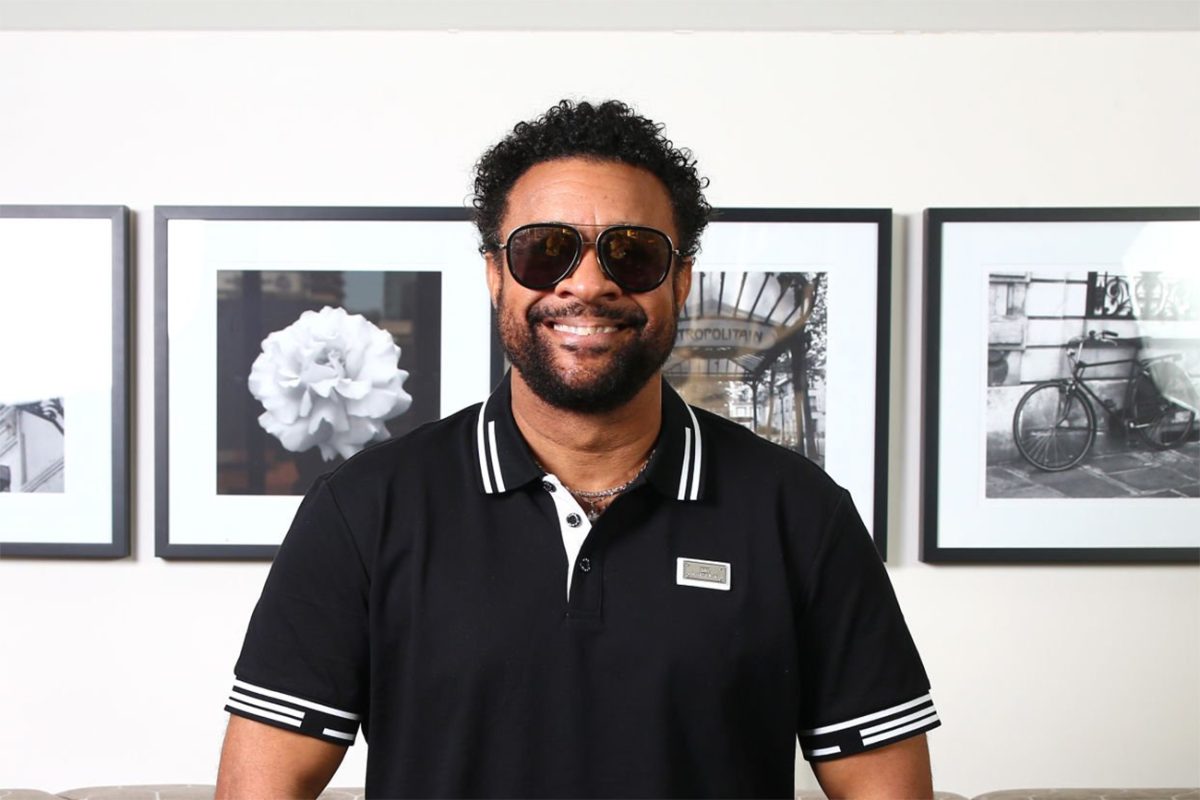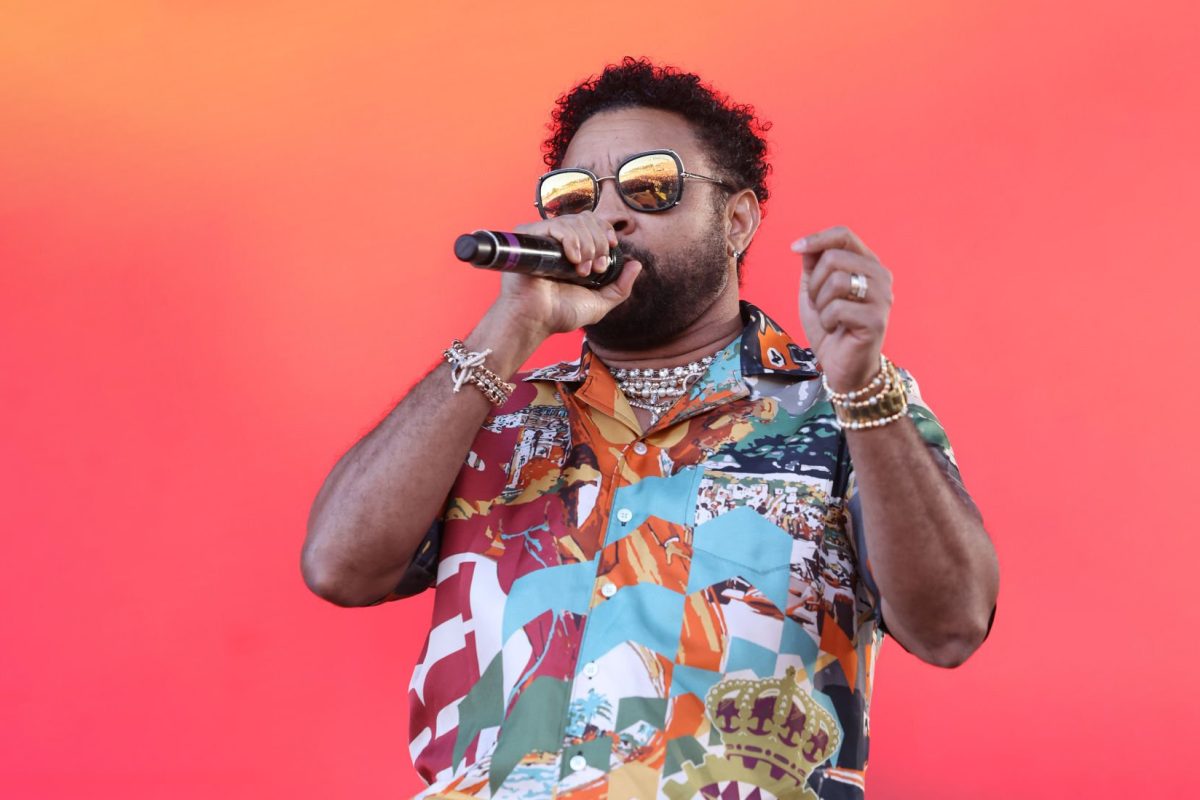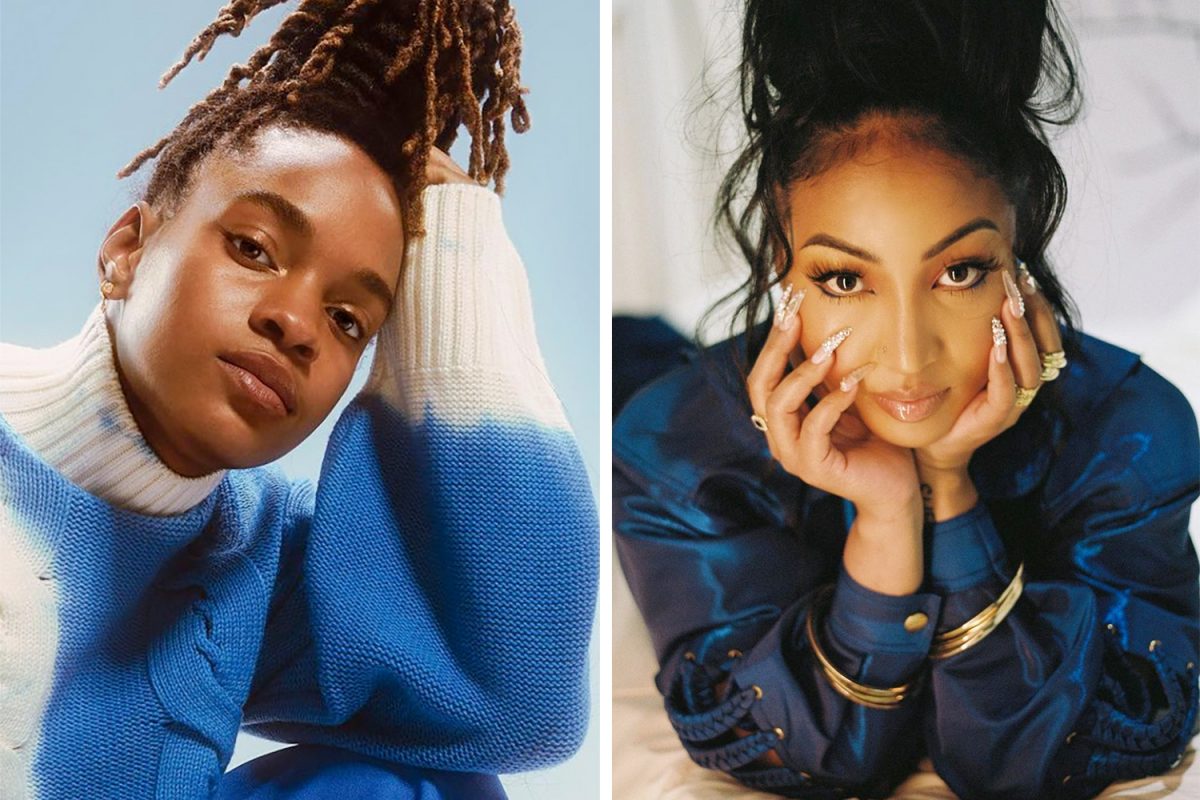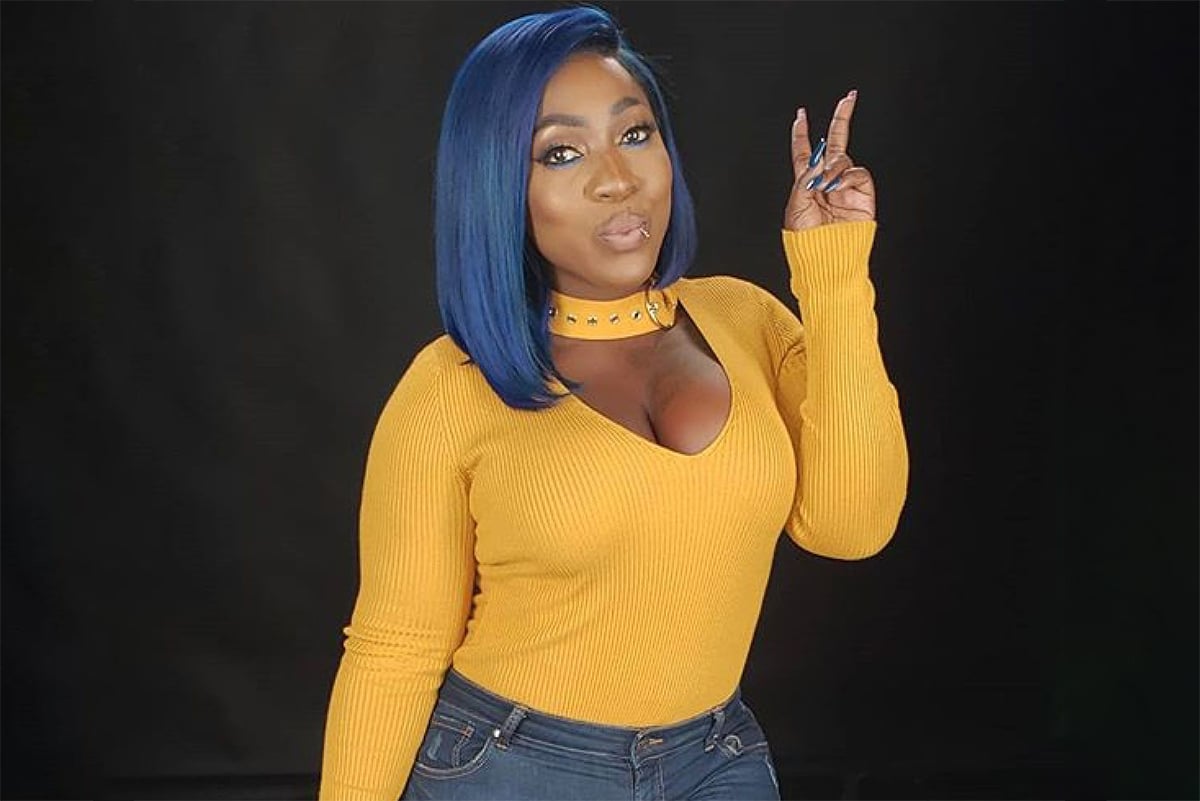Shaggy On How He’s Helping To Change Dancehall’s Numbers, And Still Being The Underdog — 40 Million Record Sales Later

A 1993 trip to Brazil opened Shaggy’s eyes to how big Reggae could be. Maxi Priest had invited the then-rising artist to join him onstage at Rock in Rio, a major music festival which that year featured acts like Nirvana, Aerosmith, and Simply Red on the line-up. “We were in front of 60,000 people,” Shaggy said, “and they were singing every line to Maxi Priest’s songs. I realized this is what I wanted: A global stadium singing every joint that I have.”
“I’m trying to have every artist in Jamaica have that changing moment, too,” he recently told DancehallMag.
Thirty years on from that revelation in South America, Shaggy sometimes sounds world-weary when recounting the bitter wisdom he’s collected along the way. The doubts of others have long trailed the Rae Town native, who has forged his legacy by shattering those same expectations. He sees his journey to the title of best-selling Jamaican recording artist as a string of upsets, with each milestone redrawing the commercial boundaries of what a Reggae and Dancehall artist can accomplish.
He’s now leveraging his experience to chart a smoother path for the younger generations in Jamaica. One such effort is the staging of the Island Music Conference, a five-day event whose focus is educating attendees to help them better navigate the labyrinthine music business. The symposium is being spearheaded by Shaggy, broadcaster Judith Bodley, and the president of Solid Agency Management, Sharon Burke.

The inaugural Island Music Conference is scheduled to take place in 2023, from February 8 to 12 in New Kingston, with the bulk of activity confined to Courtleigh. The event will feature panels like “The DSP Strategy,” “Pros & Cons of Owning Your Masters,” and “Investment & Insurance,” among others, all led by authorities from various industries. There will be showcases as well.
With two months to go until its debut, the conference is shaping up to be both a gesture of solidarity and a show of faith in future generations. “It can be done,” Shaggy repeated throughout our conversation, affirming his belief that Jamaican music’s global presence can return to former heights and, perhaps, even surpass them – with some help.
Read on as Shaggy discusses the Island Music Conference, changing the commercial trajectory of Reggae and Dancehall, and still being the underdog – 40 million record sales later.
How did the Island Music Conference get started?
It started with another event that was put on by somebody else. Sharon really brought the whole idea to me and asked if I’d be a part of it. It happened prior to the pandemic and after that, I realized that we need to do it bigger and we need to do it better. There’s a huge need for it.
While doing the first one, the people that turned up for the conversation became very interested in some cases and became heated in others. And the whole thing became lighthearted, too. But overall, I realized that there were people there that really needed knowledge and there were things that a lot of people didn’t learn. It also made me realize that there are a lot of things that I’ve experienced and need to share, that people wouldn’t know because they’ve not gotten to that level of where I am.
So at that point, we decided to do it better. We decided to make it a real establishment and something that we can do to educate the fraternity of Reggae and Dancehall.
How do you prepare for something like this?
Well, we have a massive team. Judith Bodley and Sharon Burke are the two main people. And with the contacts that Sharon and I know, we were able to call a couple of people and invite them down. There are a lot of things going into sponsorship and funding it and making it accessible.
This year, they’re doing a lot of things pertaining to showcases, which we didn’t do much of at the other event. I was saying if we have these executives here, these people, and this amount of press, why wouldn’t we have new artists come and showcase their talent and get into the whole thing? And so some of those preparations made sense.
What else do you want people to take away from the conference?
We expanded it to the point that it’s not just music. There’s the music business, and then there’s the business of music, which is the theory of music. And the theory part is where it’s not just you singing songs and touring. It’s once you make the money, then you have to figure out what you’re doing with it. We talk about disability insurance. If somebody bruk dem foot pon tour or get sick pon tour, how do you pay your bills?
We want to tackle what is known as estate planning and doing things like passive income. So we get people that are coming from investment banks, like someone from Morgan Stanley – just these people that come in and teach you how to deal with it as far as taxes, business managers, and these things that people need to learn.
Almost no artist in Jamaica has a business manager. Very few. And people think a manager is just there to count money. Most managers in Jamaica do just count money, and you don’t need a manager to do that. There are not very many managers that have a five-year game plan of where they’re going to take their artist and where they see their artist.
And these are things that need to be discussed. Great managers need to talk about those things and figure out how to make them work. So we’re expanding on not just Spotify and Youtube, and this and that, but we’re talking about what the artists need.
For us to change the trajectory of Dancehall, it has to come with education. Finding the star is not the hard part. We nah nuh problem finding talent. And you’ve got to realize, Dancehall and Reggae are less than 5% of the global market share. So I’m gonna ask you this: When have they ever not been less than 5%?
Never.
Exactly. When I was doing it, they were probably 2% of the market share. And I sold 40 million records, right? So don’t tell me it can’t be done. But, the only thing that will shift the culture is a superstar. And when I say superstar I mean a star with superhero-like talent, charisma, charm, and work ethic.
All of those things lined up and great management and that person becomes a superstar, and they will shift culture. Stars maintain culture, superstars shift it. Shabba Ranks shifted culture. Yellowman, back when Dancehall wasn’t even 1% of the market share, came on and the world stopped and said, “who is this guy?” That’s a superstar.
When it comes to global streaming numbers, you, Sean Paul, and Bob Marley & the Wailers are still topping the list for Jamaican artists…
And, might I add, we shouldn’t be.
What do you think younger artists need to focus on to make that flip happen – to take the lead?
One of the main things is work ethic. Shenseea has shown that if you work hard, you can be huge. She really hasn’t gotten that one record yet, but still, she’s a tremendous success because she works really hard. She will eventually get it cah she have her foot pon gas.
It can be done. People should look on her as an example. Look at what Koffee is doing. Look at what these artists are doing as examples.

Listen, if you are used to $100 and then you get $1000, yah guh feel rich. If you get $10,000, yah guh feel really rich. And people just get to that point where they’re like, “Ok, yeah, mi rich.”
I can’t understand artists that, when I talk to them, they’ve gone through all of this – man sleep pon verandah, man come from country, man sweat out, man do everything, and get them buss. And when them get them buss and gwaan, them just stop work. You went through all that just to stop? Unbelievable. Why? Because you get that amount of money, you don’t realize that there are other levels of money out there? You could become a billionaire. A billionaire with a ‘b.’
You’ve mentioned that you’re excited by some of the up-and-coming artists in Jamaica right now. Do you find that these newer sounds are influencing the music you’ve been working on?
I’ve got a team over here at Ranch [Entertainment], and they’re all young people. I’m not stuck with the old. I’m open to everything that is young, youthful, and cool. But what I’m not gonna go for is something that’s not working.
I don’t care how cool it is, if it ain’t working, it makes no sense.
So I’ll use a bit of what these young guys will come with – like Shane Hoosong, and a couple of these guys that are around me. But then I bring my experience to it and craft it in a way that I know will work. Because you gotta understand that songwriting is a formula.
It’s not just get up and seh, “Bwoy, dem haffi smoke some weed and drink dis and ketch inna di mood. I ain’t that guy.” I treat it like work. If I’m in the studio from 11 till 6, whatever amount of songs I want done, I get them done. And I’m out. I don’t have to be in a mood, I just sit down and do it.
So what I do is, I’ll take their ideas, put my formula to it, and many times, the guys that are into music will see what I do, and they’ll be like, “Oh wow, I never even thought of that. That’s wicked.”
There are ways that you have to formulate it and put it in a craft. And I merge with newer artists. If you notice on most of the hit records I’ve done, I tend to use a new artist. If you listen to It Wasn’t Me, it was by a new, unknown artist by the name of RikRok. On Angel and on In the Summertime, there was a new, unknown artist by the name of Rayvon. On I Need Your Love, there were Mohambi and Faydee. Banana was with Conkarah.

And there’s Spice, who wasn’t an unknown artist, but she was not a global, international artist when she partnered with Sean. And that was essential on Go Down Deh. Why? Because it was all Jamaicans: A Jamaican video director [Jay Will], a Jamaican label, which was VP Records, and three Jamaican artists. And we went ahead and streamed well over 150 million. And you’ve got to remember that’s in the middle of a pandemic. Even Banana was in the middle of the pandemic, and that’s 2 billion streams.
So it can be done. I was just recently looking at different artists that are coming up right now in Jamaica to be featured on the next set of things that I’m coming with because I have a platform. So instead of sharing that platform with a bunch of already-rich foreign artists, why don’t I do that with some new artists?
And that’s just been a formula that’s worked for me over the years. And I like it like that. One thing you get from a new artist is that they’re gonna work it. They’re gonna be on the road with you. They’re gonna do everything that they can with you because they want the break. When you get a superstar artist, what are they gonna do? They’re gonna dodge you.
Unless you’re an artist like Sting, who came together with me as a big star. We’re a team. We made up our minds seh we a guh hard. And we did. Not many artists do that.
You’ve also said that in the early years of your career, you felt like you were working 10x harder than your peers to make an impact. Are you still keeping that same pace?
I have to, because I’m still the underdog, as big as I am. I just did [a tour in] Australia. I was early for that. If you look at all the videos that I posted for that, they were in the day, because for me to get on that particular tour, [the organizers] were like, “Oh, he’s Reggae. How does he fit in? How much of a draw is he gonna be? Reggae is less than 5% of the market share.”
So I went in there anyway and took that slot, and people who performed after me sold fewer records than me. Some of these guys didn’t have the global appeal or success that I’ve had. But they came on after me as headliners.
Now after the first show, the promoters came to me and were like, “Whoa, we didn’t know.” And everything changed. Everybody was on the side of my stage watching me every day after that. And then the promoters came after and said, “Shaggy, you know what? We were wrong. We didn’t know. We had no idea.”
So it’s almost as if, because I add myself as Reggae and Dancehall, it almost works to my disadvantage, more than if I were to go out there and say I’m Shaggy, the pop artist.
I did a whole tour in Europe for three months. I did two Reggae festivals, and the rest were my shows and some pop festivals. Those two were my two lowest-paying festivals. I got paid the least and treated the worst, but I did them because I wanted to do Reggae festivals. It’s at one of those [Reggae] festivals that I ended up cussing some ‘bloodclaat’ on.
And I might make some noise and cuss off some people pon that ‘cause I’m the only one who could do it. The rest of the artists dem nah guh do it. I don’t have to do those festivals. Matter of fact, I’ve done Summerjam [Festival] only twice in my whole career. Some people have done it 6, 7, 8 times. I’ve only done it twice.

But I have a platform where I can stand up and cuss them off and say, “No, mi nah do this or no, mi nah tek this.” The next guy a do that, [the organizers] might say, “Yow, mi a guh cut off dem food.” So the artist might say, “Mi nah guh do it. Mi a just guh suffer through it.”
So sometimes, you gotta know how it works. Yes, I go ten times harder, but I’m also smarter. I also stand up for certain things, and I know when to go off and when not to. I could go off on Summerjam, because if they never hire me again, it doesn’t affect my pockets. I’m a global success, and I’ll be here for a while. My songs will be sung for years upon years. If they don’t want me, another guy can do it.
I can decide that I don’t want to tour for the rest of my life right now and I’ll be great. Because I’ve already set up my life and my investments. And to where I operate, I have passive income. I have insurances and money in the bank. I have certain things that are working for me.
But then what am I gonna do? Stay home and plant flowers?
I was gonna ask how you’ve maintained that drive over the years…
It’s a sport. ‘Cause when people seh, “Reggae nuh dis” and “Reggae nuh dat” and then you prove them wrong… boy, it’s such a beautiful feeling.
